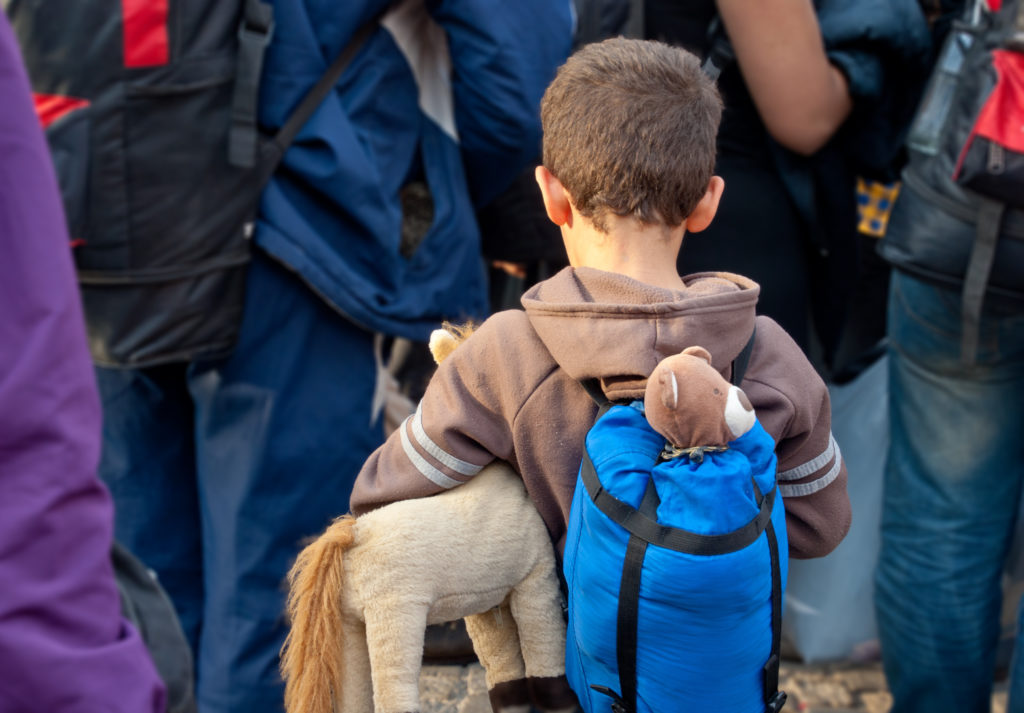The Cologne University hospital is a specialty outpatient clinic for refugee children. The reason: These children are particularly often traumatized and suffer from the resulting diseases, such as Post-Traumatic-stress syndrome, Borderline personality disorder, attachment disorder, anxiety disorders or suicidal tendencies.
Why suffer refugee children in trauma?
Important triggers for trauma are: to be A dangerous Situation in a helpless way; to see how familiar people are dying and / or violence is done to; to suffer violence themselves; sexually abused or raped. Children who fled from war and Chaos experienced something like that very often.

Up to 50 % of Traumatized
Studies allow us to conclude: from 19% to 50 % of all children and young people with refugee backgrounds suffer from disorders caused by trauma. Particularly common is the Post-Traumatic-stress syndrome. Here harmless situations that trigger lens the feelings of traumatic events: people climbing out of a car to activate the memory of the soldiers that massacred the parents; Fireplace smell, the imagery of the burning village life.
Regression and sleep disturbances
Other symptoms can outsiders less obvious to the Trauma include: victims suffer from sleep disorders, you have pain, nightmares and belly. Typical for trauma-related disorders are regressions: young people suck their thumb, Bettnässern to be or talk like babies.
Unusual Game Behavior
The children often show an unusual game behavior, whether it be that they re-enact the seen or suffered violence, be it that you lose yourself in a fantasy world. Some tinkering even in the computer to play a completely “different world”, to escape the memories.
What are the special clinic?
The outpatient clinic at the University clinic in Cologne offers group therapy for approximately eight participants in the care of children – such as youth psychiatrists. In October 2018, the first started with eight boys from North Africa, Syria and Afghanistan.
What is the purpose of the group therapy?
The group therapy is supposed to stabilize the Affected. This is the prerequisite so that the professionals can reprocess the Trauma and the Affected tools of the trade give to their experiences.
Supply gap
According to the competent child and adolescent psychiatry, although there is already offers on other facilities as well as Doctors who worked with traumatized refugee children, but there is a significant gap in the supply.
Trauma Ambulance
Severe cases come from the group therapy at the Trauma outpatient in the clinic or the training Institute for child and youth psychotherapy.
Who is most affected?
In General, all children who have experienced flight, expulsion, war, torture, imprisonment, and Hunger, in danger of suffering trauma-related disorders. Especially bad for children from Syria. Of these, one in five suffered of 2015, alleged to be a post-traumatic disorder.
Safety and educational support
Refugee children are uncertain, their “old world”, and your sense of security is shaken by the experience of Chaos, death and violence. Therefore they need educational and psychological support that gives you security, no matter whether you suffer open to trauma-related diseases or not.
How can the outside with standing trauma?
The diagnosis of PTSD and other trauma-related disorders experts. As a social worker, educator, teacher, or in everyday life, you can pay attention to the following signs of a trauma: the child is exceptionally suspicious? It often seems absent-minded – like “in another world”? It is overly fearful? It is very nervous? It is emotionally unstable? It suffers from Anxiety, doesn’t understand it himself? It suffers from eating disorders?
It seems confused.
What can you do as a medical lay?
The symptoms of the trauma, the stress program the body to activate. This is evolutionarily emerged as a response to hazards. It is therefore important to give the children in the specific Situation, a sense of security to accompany it in everyday life, to show him “I’m here to take care of me”. If the child has questions, you should answer this child-friendly and honest. (Dr. Utz Anhalt)
